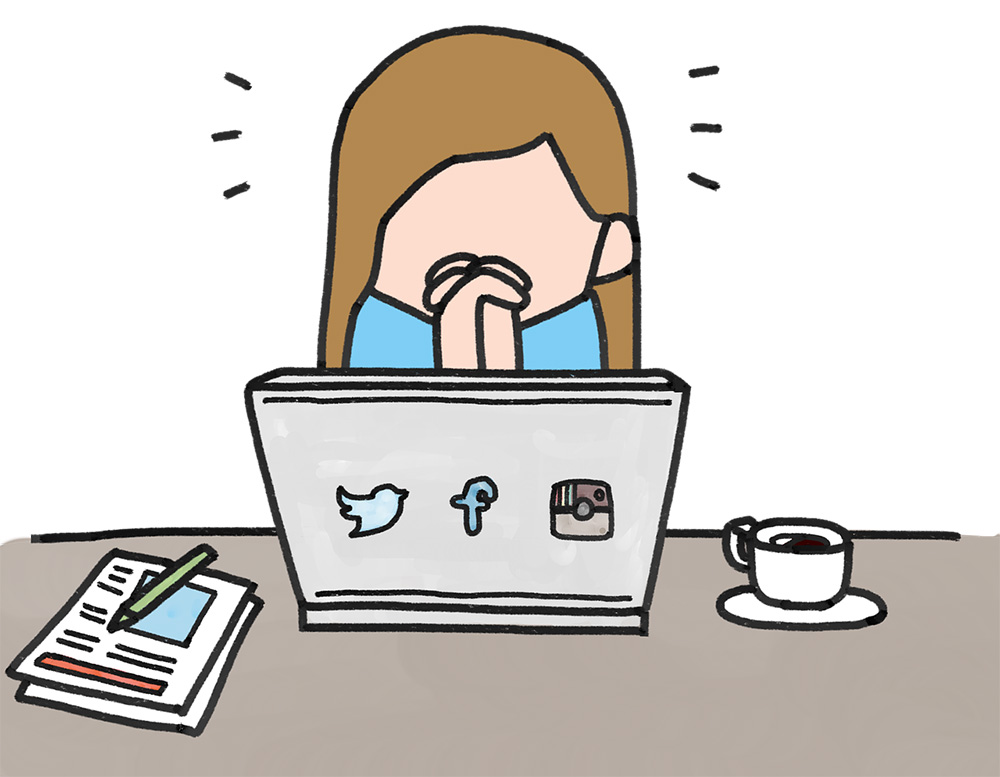Mental Health Week: The Meld ‘Social Media Detox’ Guide
What’s the first thing you do when you wake up in the morning? If you answered, “Check my phone”, you’re certainly not alone. Everyday we check our messages, scroll through Instagram, maybe watch a quick YouTube video… We have an urge to be entertained or informed as soon as we open our eyes.
But as amazing as social media platforms like Facebook and Instagram can be, relying on it can also create negative side effects or exacerbate other problems too. These include:
Inability to concentrate: How many of us have tried writing an assignment only to have our attention diverted to a meme or funny video in under fifteen minutes? With a tap of a screen, we’re assailed with all the latest uploads from our friends and celebrities which in turn affects our attitudes towards work.
Decrease in self-esteem: Everyday is an uphill battle. For young people, that battle includes resisting the urge to compare their lives against the lives of those they follow on social media — people who seemingly have their lives together. How we view ourselves in relation to others can affect one’s self-esteem and sense of worth which is never a good thing.
Finding validation in the wrong places. By spending most of our time in front of a screen, it begins to take the place of real life. We tend to start valuing the number of ‘likes’ we receive on a photo more than sharing the actual story behind the photo with friends and family. Meaning is thus lost in the way we find gratification.
The ‘Social Media Detox’ Solution
To combat all the ways in which social media may be harmful to our own mental health; what I propose is a social media detox. Detox is short for the word ‘detoxification’, which essentially means abstaining from a toxic substance that has been causing you harm. So a ‘social media detox’ is basically taking a leave of absence from social media to re-centre yourself.
I am aware however that many of us use social media for work-related purposes, or to communicate with family and friends who live far away. Therefore, take this proposal as unreservedly or as moderately as you require, and naturally, modify it according to your lifestyle.
Complete Detox
A complete detox is where you swear off social media completely. This one’s pretty self-explanatory, nevertheless here are some recommendations on what students can do:
- Delete all social media apps on your smartphone.
- Log out of all your social media accounts.
- Log out of all your social media accounts then ask a family member to change all the passwords and under no circumstances reveal them to you until the designated detox period is over.
This is especially useful for when students need to avoid using social media so as to completely focus their energy into their studies.
Partial Detox
A partial detox is where you significantly cut back on time spent on social media. Here are some suggestions for you to pick and choose from:
- Do not turn on your Wifi first thing in the morning.
- Designate certain times during the day when you’re allowed on social media.
- Turn off the notifications from social media platforms.
- Turn off your Wifi while working.
- Turn off the notifications from social media platforms while working.
You are capable
Exercise this detox for as long as you want, be it a week, a month, or even a year — whatever you require to maintain good mental health. Make sure you are investing more time in self-growth and building stronger relationships with people you care about.
And remember that in today’s world, staying connected and using social media isn’t a bad thing. What is important, however, is to discover your own personal way of managing your time with social media in your life.
So let’s go on this social media detox together, and create better and happier lives for ourselves! Because if you’re spending more time curating your online persona more than your actual self, then you know something needs to change.
Meld wishes to build a culture where mental health issues can be freely discussed and encourage all international students to seek assistance and advice, professional or personal, if they are experiencing difficulties that may be affecting their mental health.
Students who are affected by mental health issues or those who know someone who is can seek help through hotlines such as Lifeline at 13 11 14, beyondblue at 1300 22 4636, and Headspace at 1800 650 980.
For LGBTQ individuals who have specific needs, contact QLife at 1800 184 527.
Students may also seek help from in-house university counsellors or helplines.

